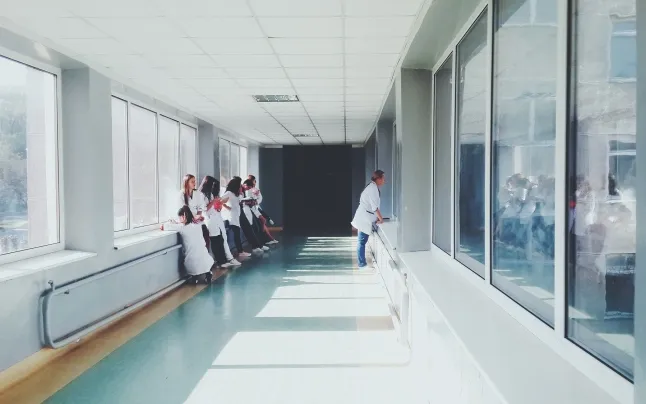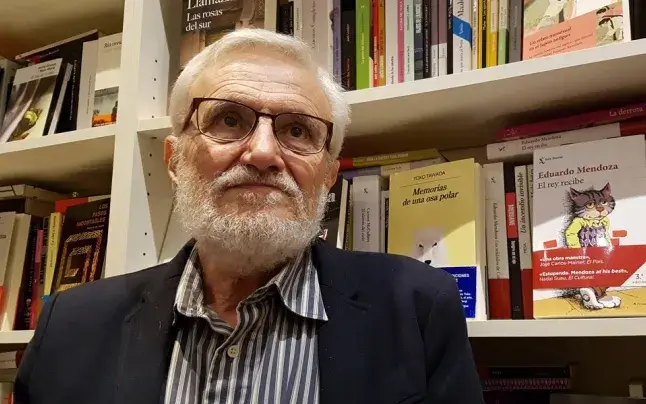A quality, universal and well-resourced public health system has proven to be the only effective measure in an emergency situation such as that caused by the coronavirus pandemic.
"The first lesson we must learn from this crisis is that we need a strong public health system to respond to situations as those caused by Covid-19. It seems obvious, but it is not", says doctor Marciano Sánchez Bayle, chief of the Fundación Alternativas and spokesperson for the Federació d'Associacions en Defensa de la Sanitat Pública (FADSP).
We wonder: at what point did we stop believing that a quality, universal and strong public health system was essential for people's health and well-being? It has taken a global pandemic, which has already caused nearly 90,000 deaths worldwide and has half the world confined, to recognize and value what now seems obvious.
It is true that no one predicted the harshness of the health crisis unleashed by Covid-19 and that few - if any - health system was prepared to face an emergency of such magnitude. "These unforeseen situations are always difficult for all the health systems to manage, especially when they occur unexpectedly and because of a new pathogen", explains Sánchez Bayle.
A system afflicted by cuts
Nonetheless, the virus has made us remove the blindfold from our eyes and to look back and analyse everything that has been done wrong. "The cuts and privatisations on public health during the last few years have had an important incidence. Even today the levels of investment regarding the GDP have not recovered those from 2010", says Marcel·la Güell, member of the health commission of the FAVB who has a long career in defending public health.
Sánchez Bayle goes into detail on this issue: "The lack of resources has been very important. Between 2010 and 2018 some 12,000 hospital beds were reduced throughout the nation and now, it has been proven that they were extremely necessary, seeing that field hospitals are being opened in a rather improvised way", he explains while he also highlights the reduction on the stock of material which is now causing many headaches.
These are opinions based on data. Spain is the fourth OECD country that has reduced its public health spending the most since 2009, when the cuts driven by the economic crisis started, according to the organisation. This means that, before the recession, the country spent nearly 7% of its GDP on public health while today it stands at 6,2%, which represents a cut of 7,600 million euros in health care spending.
These past days, one of the images that will remain etched in our minds is, undoubtedly, that of the citizens gathered on the balconies to applaud the effort and courage of the health workers, who are the most exposed in this crisis. "Knowing that the health workers have the public support is important, there is no doubt", concludes Sánchez Bayle.
But, what is behind the applause? "Health workers have saved the system with their professionalism and quality despite the precarious conditions and the reduction of recruitment. They have endured the public health", highlights Güell. "Now they remain active despite the lack of material and the discomfort caused by the equipment they use. The exhaustion is huge, especially emotional".
The role of private healthcare in this crisis
How is private healthcare reacting to the emergency? The state of alarm decreed by the Spanish government gave powers to the Ministry of Health to take control of private healthcare to cope with Covid-19. In addition, Sánchez Bayle criticises its role in this crisis: "the private sector is revealing itself because its main interest is to obtain economic benefits and this is incompatible with treating complex and pathological patients with an uncertain prognosis".
The doctor and spokesperson of the FADSP goes even further: "I have noticed some resistance from the private sector to serve the public interest. It is doing its best to assume as little responsibility as possible and this is also the government's fault", he says. For example, he explains that private hospitals have 27% of the total number of hospital beds and only 10% are occupied by patients with coronavirus.
"The public health systems are those responding to the emergency because they are the only ones who can look after the entire population putting quality healthcare before people’s economic situation. Hopefully, this crisis will open our eyes", concludes Sánchez Bayle. Thus, despite the high price we are paying, one of the lessons we can draw from this health crisis is that we must defend, protect and value the public health system. And this, despite everything, is good news.









Add new comment